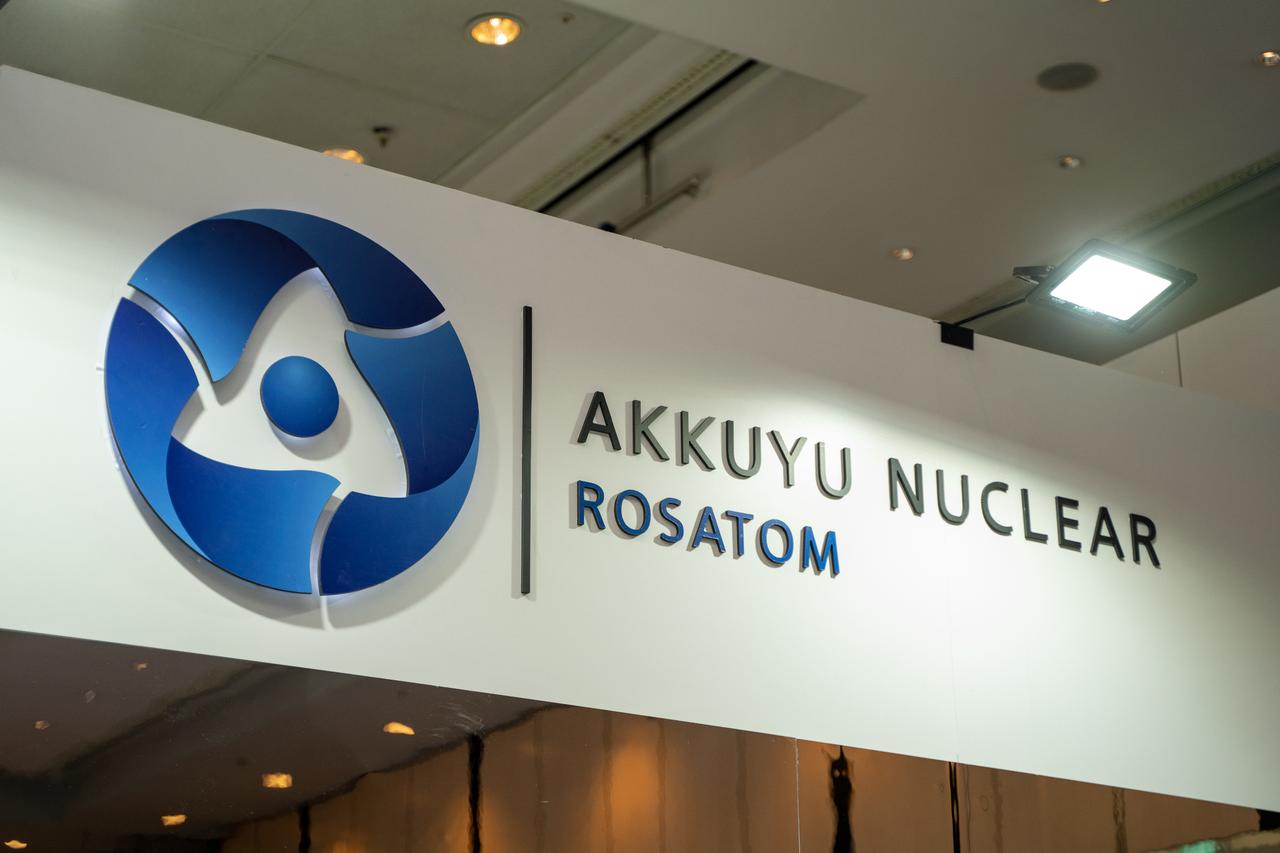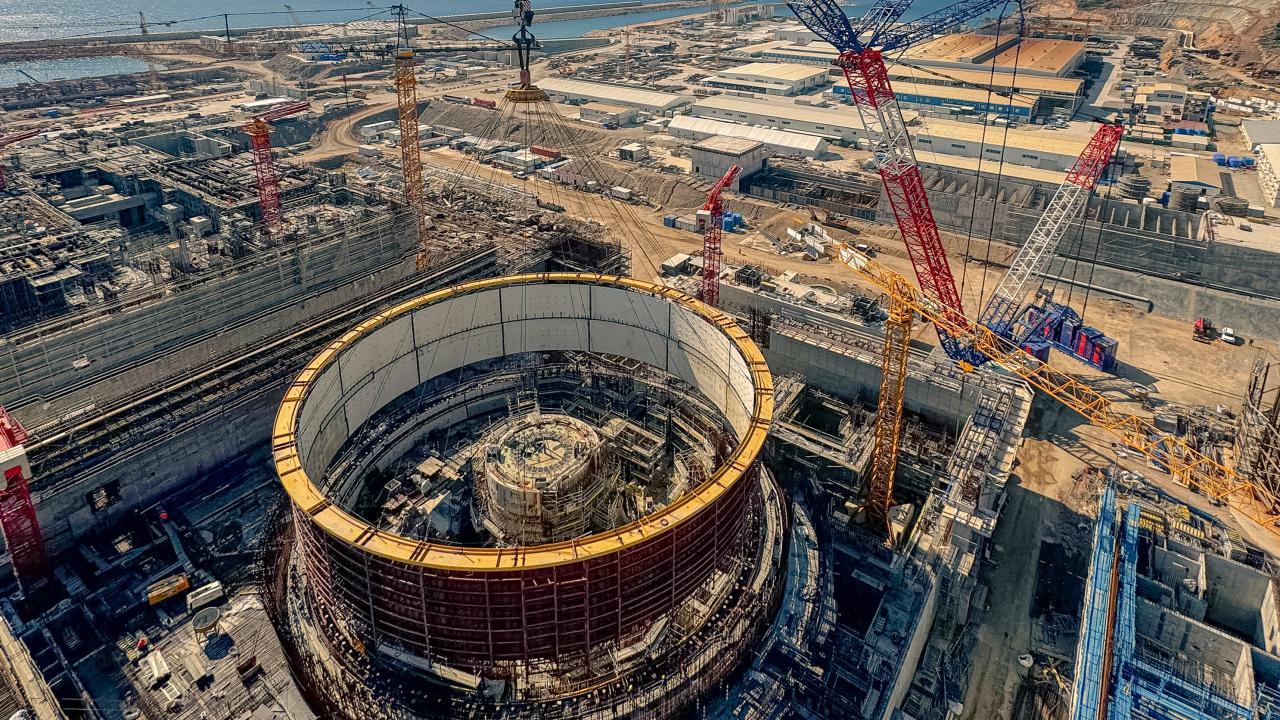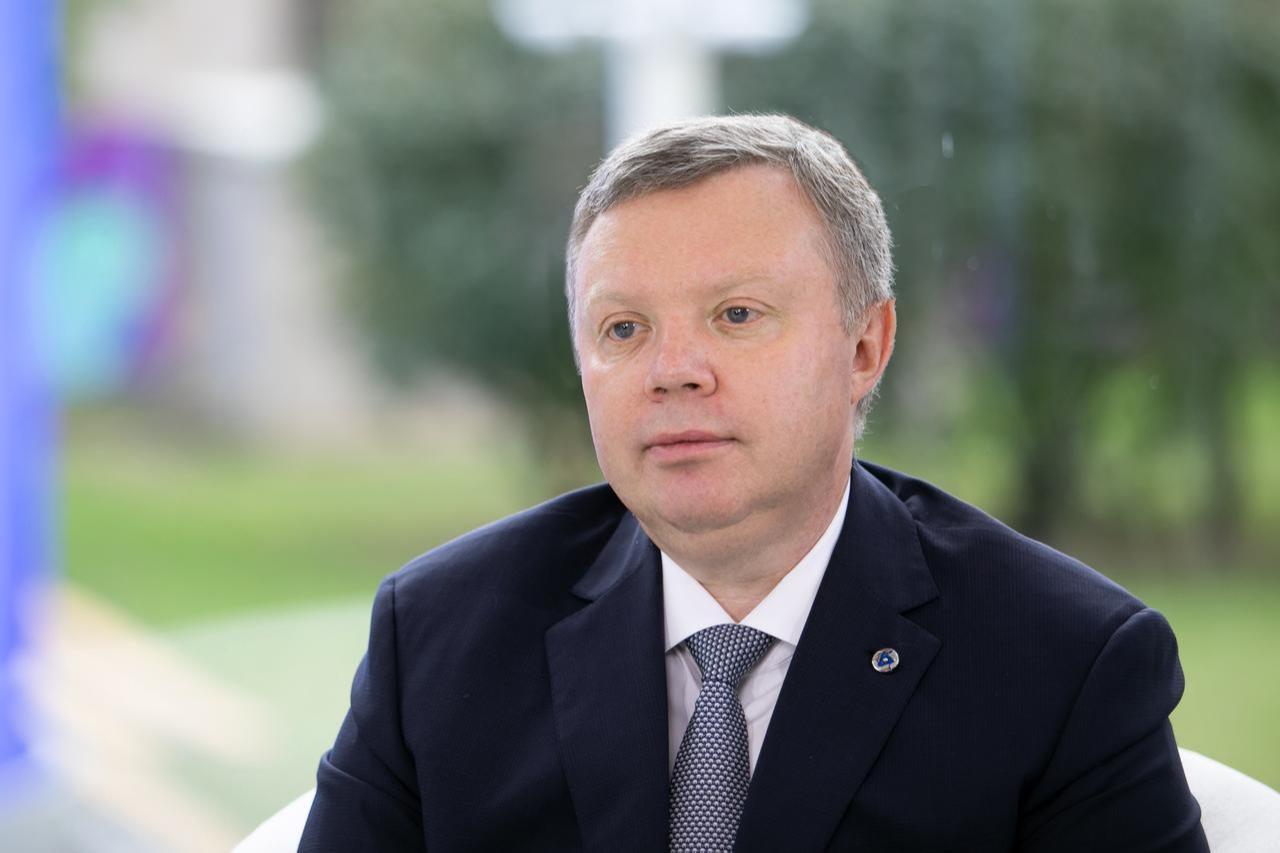
Russia’s state-owned nuclear energy company Rosatom's Deputy General Manager Kirill Komarov said that financial and logistical challenges at Türkiye’s first nuclear power plant, Akkuyu, have been resolved, paving the way for all four reactors to be completed by the end of 2028.
Komarov told state-run Anadolu Agency (AA) during World Nuclear Week in Moscow that construction at Akkuyu, described as the world’s largest active nuclear site with four units totaling nearly 5,000 megawatts, is continuing at full scale and is expected to eventually supply about 10% of Türkiye’s electricity needs.
The Akkuyu project has faced delays in recent years due to sanctions on Russia following its war in Ukraine, complicating equipment deliveries and blocking access to certain financing channels.
In July, Bloomberg reported that Rosatom was in talks to sell a 49% stake in Akkuyu Nuclear JSC, its project subsidiary, to Turkish and foreign investors.
Komarov pointed out that Siemens withheld delivery of a power output system without providing any explanation, citing it as an example of the challenges faced by the project.
"We solved this problem by bringing in suppliers from Russia and China. As of today, the system is almost ready to operate, and by the end of the year, the installation of new equipment will be completed," Komarov said.

On the financial side, Komarov confirmed that $2 billion allocated for the project in the United States had been frozen, creating temporary funding gaps.
"This was an unpleasant situation, but financial issues were successfully resolved recently, primarily with the support of the Russian government," he noted. "Today, the project is fully funded."
The first of Akkuyu’s four 1.2 gigawatt units is currently in testing, and Rosatom executives have said they expect it to be ready to supply electricity to Türkiye’s grid by late 2026.
The full complex, with a projected cost of $25 billion, is designed to operate for 60 to 80 years, and potentially up to 100 years with extensions.

Komarov argued that peaceful nuclear technology should remain separate from geopolitical disputes.
"Peaceful nuclear technologies must be kept as far away as possible from political turbulence," he said.
Despite the Ukraine conflict, he noted, Rosatom’s international business has expanded.
"Over the last three years, Rosatom’s foreign revenue doubled from $9 billion to $18 billion. At the same time, our order portfolio remains at around $200 billion."
He added that Rosatom continues to fulfill obligations worldwide, including uranium supplies to the United States and cooperation with Western Europe, stressing, "We are not guided by political circumstances. Our principle is to honor our commitments flawlessly."